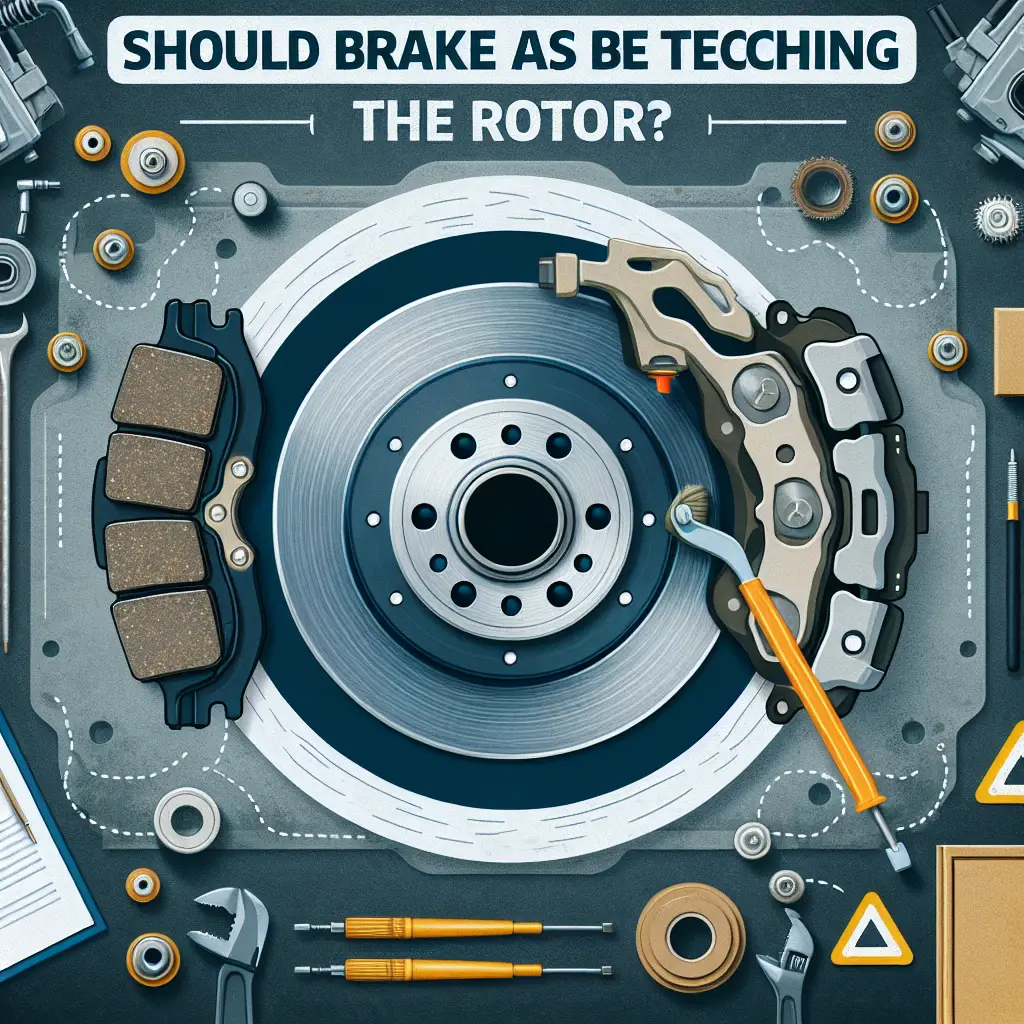Should Brake Pads Be Touching the Rotor? Understanding Your Vehicle’s Braking System
When it comes to the safety and performance of your vehicle, the braking system plays a pivotal role, and within that system, the relationship between the brake pads and the rotor is critical. For those less familiar with the mechanics of a car, it might be surprising to learn just how close these parts lie to one another. The question often arises among drivers: should brake pads be touching the rotor? The answer is nuanced, and understanding it is key to ensuring your vehicle operates safely and effectively.
The Basics of the Braking System
Before diving into the intricacies, let’s set the foundation by reviewing the components involved. The braking system of most modern vehicles consists of a disc brake mechanism that includes rotors (also called discs), brake pads, and calipers. When you press the brake pedal, hydraulic fluid is sent through the brake lines, causing the calipers to press the brake pads against the rotor. This friction slows down the wheel and, consequently, your vehicle. But, should there be contact between the pads and rotors even when you’re not braking?
Constant Contact: A Closer Look
In an ideal scenario, brake pads should lightly touch the rotor even when the brakes are not engaged. This is not the same as applying pressure that would slow the wheel but rather a very gentle contact that prevents corrosion and removes debris from the rotor. The calipers are designed to allow the pads to retract slightly when the brake pedal is not being pressed, but due to the hydraulic nature of the system, they never fully withdraw. This is a normal and essential aspect of the brake system’s design, ensuring that brakes respond instantly when needed.
Potential Problems with Brake Pads and Rotors
In some cases, drivers might hear a slight scraping noise even when not actively braking, which is often a sign of the constant contact between the brake pads and rotor. This should not be cause for alarm unless the noise becomes louder or is accompanied by performance issues.
However, excessive wear on the pads or rotors, a grinding sound, or a feeling of resistance when driving could indicate a problem. The culprit could be:
- Sticking calipers: If a caliper piston is stuck, it might cause the pads to press too firmly against the rotor. This can lead to overheating and uneven wear.
- Warped rotors: Over time and with heavy use, rotors can become warped. This creates a more noticeable and uneven contact with the brake pads, which can affect your vehicle’s ability to stop smoothly.
Companies like NAPA Auto Parts offer high-quality replacement parts for when these components begin to fail. It’s incredible how something as seemingly insignificant as a rotor’s thickness can have such a profound impact on your car’s safety.
Proactive Maintenance: The Key to Longevity
To avoid undue wear and ensure your vehicle’s safety, regular brake inspections are a must. Experts typically recommend having your brakes checked at least once a year or depending on your driving habits and the manufacturer’s recommendations. During an inspection at a credible service like Firestone Complete Auto Care, a professional will measure the thickness of the brake pads and the rotors and check for any signs of damage.
Your driving habits can also have a significant impact on the brake pads and rotors. Aggressive braking can lead to the pads wearing down faster and can cause rotors to warp from the heat. Adopting a smoother braking technique can extend the life of these parts significantly.
Conclusion: A Matter of Precision
In summary, brake pads are indeed supposed to be in constant light contact with the rotor, but they should not exert significant pressure when the brakes are not engaged. Consistent inspections and understanding how your driving habits affect your vehicle’s brakes are crucial.
Should you suspect that there’s a problem within your braking system, don’t hesitate to get it checked by a professional. As a Car Care Council supporter, I cannot stress enough the importance of regular maintenance. For those who want to delve deeper into vehicle care and understand the intricacies of automotive maintenance, enrolling in an ASE certification program might be beneficial.
Owning a vehicle is a responsibility, and as we spend more of our time commuting or hitting the road for adventures, ensuring that our cars are as safe as possible is nonnegotiable. The nuances of your braking system, particularly the dance between brake pads and rotor, are a perfect testament to the importance of precision in automotive design. Don’t ignore the subtle signs your vehicle sends you – they could be the key to a safe and enjoyable driving experience.

